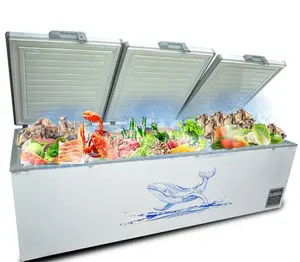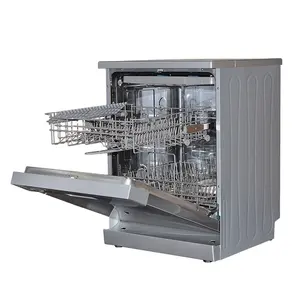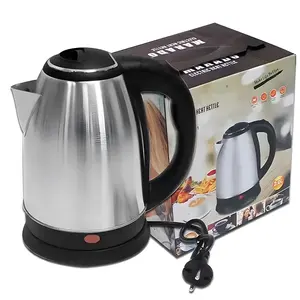Popular in your industry
























































Related Searches:





















































































































 Ready to Ship
Ready to Ship

















 Ready to Ship
Ready to ShipTop categories
About dishwasher detergent dispenser
The humble dishwasher has come a long way since its inception, evolving into a staple of convenience in modern homes and businesses. At the heart of this evolution lies the dishwasher detergent dispenser, a component that has undergone its own transformation. From the rudimentary mechanisms of the past to the high-tech solutions of today, these dispensers have become a testament to innovation and efficiency. This article delves into the fascinating progression from basic models to cutting-edge smart sensor systems, exploring how these advancements have revolutionized the dishwashing process and what they signify for the future of kitchen technology.
Evolution of Dishwasher Detergent Dispensers

The journey of dishwasher detergent dispensers mirrors the evolution of the dishwasher itself. From the early models that required manual detergent addition to the latest automatic dispensers, there has been significant progress. Initially, dishwashers were mechanical marvels that simplified the task of washing dishes but still lacked the sophistication of modern dispensers. It wasn't until the mid-20th century that dishwashers began to see widespread domestic use, and with this, the features of these appliances, including detergent dispensers, became more advanced.
The development of dishwasher technology in the postwar era saw the integration of more automated features, setting the stage for the introduction of automatic detergent dispensers. These dispensers were designed to release the correct amount of detergent at the optimal time during the wash cycle, enhancing the efficiency and convenience of the dishwashing process. As dishwashers became more common in households, the demand for improved functionality led to innovations in dispenser technology, including the use of sensors and more durable materials.
Today's dispensers have evolved to offer a combination of durability and technology. Dispensers provide longevity and withstand the harsh conditions within dishwashers, while smart sensor dispensers represent the leap into modernity, adjusting detergent release based on the load's cleaning requirements. This evolution reflects the ongoing innovation in dishwasher technology, aiming to provide users with both practicality and efficiency in their dishwashing experience.
Stainless Steel Dispensers: Durable and Classic
Stainless steel soap dispensers are synonymous with durability and a timeless aesthetic. Their robust construction from materials like commercial-grade stainless steel ensures longevity and resistance to rust and leaks. These dispensers often come in various sizes, from compact units suitable for personal use to larger options designed for high-traffic areas. Wall-mounted models provide a space-saving solution, often found in both commercial and residential settings. The stainless steel finish not only adds a touch of elegance but also offers practical benefits, such as ease of cleaning and maintenance. The material's inherent properties make these dispensers a hygienic choice, as stainless steel naturally repels germs and is easy to sanitize.
The versatility of stainless steel soap dispensers extends to their functionality. Manual versions, like the classic pump style, offer a simple and reliable method for dispensing soap. In contrast, automatic models equipped with smart sensors introduce a modern touch, allowing for a touchless, more hygienic experience. These sensor-based dispensers are equipped with infrared technology that detects the presence of a hand, dispensing a controlled amount of soap and minimizing waste. Whether for a kitchen, bathroom, or commercial environment, stainless steel dispensers remain a popular choice for their blend of functionality, durability, and style.
Smart Sensor Dispensers: The Leap into Modernity
Advanced dishwasher series represent a significant advancement in the realm of dishwasher detergent dispensers with its smart sensor dispenser that determines the precise amount of detergent needed based on the cycle selected and the level of soiling on the dishes. This innovation marks a leap into modernity by introducing a smart sensor dispenser that ensures efficient and effective cleaning by dispensing the optimal amount of detergent, thereby revolutionizing the dishwashing process.
The smart technology extends beyond just detergent dispensing. Homeowners can utilize mobile apps to remotely manage their WiFi-enabled dishwasher, monitoring detergent levels and controlling the start and stop functions. Compatibility with smart home systems further integrates these dishwashers into the connected home ecosystem, offering a seamless user experience.
In addition to smart dispensing, these series dishwashers offer customizable options to enhance user convenience and reduce waste. They can be programmed to start at various times, and the intelligent system is designed to cancel a cycle if the door hasn't been opened, indicating no new dishes have been added. This level of smart functionality in detergent dispensing and machine operation exemplifies the modern approach to kitchen appliance design.
Types of Dishwasher Detergent Dispensers on Alibaba.com

Exploring the variety of dishwasher detergent dispensers available on Alibaba.com, one can find options tailored for automated systems. A notable type is the liquid dishwasher detergent designed for use with automatic dispensers. This non-foaming detergent formula is engineered to tackle grease and ensure dishes emerge from the dishwasher with a brilliant shine, negating the need for manual drying. The product's concentrated nature speaks to its efficiency, as it is produced with fewer resources and offers the potential for cost savings, provided it is mixed correctly according to the manufacturer's instructions.
The dispensers are suitable for a range of container sizes, from smaller 1-gallon cases to larger 55-gallon drums, accommodating various scales of commercial dishwashing needs. While the product is primarily intended for commercial machine dishwashers, its versatility is evident in the different packaging options, which cater to businesses of all sizes. It's important to note that such detergents are classified as hazardous materials, which may influence shipping considerations.
Material Safety Data Sheets, which are available post-purchase, provide essential information on the chemical composition of the detergents, including the presence of chlorine and potassium hydroxide, as per the Safety Data Sheets (SDS). This information is crucial for ensuring safe and informed use of the detergent dispensers in commercial settings.
Manual vs. Automatic Dispensers: Understanding the Difference
In the realm of dishwashing, the debate between manual and automatic methods extends to the dispensers used for detergents. A study comparing manual washing to the use of an automated dishwasher highlighted significant differences in efficiency and compliance. Manual washing often fell short of the required wash water temperature, with a significant portion of the washing time not meeting the minimum temperature requirement, leading to potential food safety issues. In contrast, automatic dishwashers ensure consistent washing and sanitization temperatures, crucial for compliance and food safety.
The efficiency of automatic dispensers is further underscored by their ability to allow multitasking. Staff can load the dishwasher and attend to other tasks, enhancing productivity. This contrasts with manual methods, where the process can be less structured and sometimes even skips essential steps like proper sanitization. Moreover, the study found that manual washing often resulted in inadequate submersion times in sanitization solutions, compromising the cleanliness of the dishes.
Automatic dispensers provide a clear advantage in maintaining consistent and adequate levels of detergent and rinse aids, ensuring optimal cleaning and sanitization. This level of control and reliability is challenging to achieve with manual dispensing, which can be prone to human error and inconsistencies. The transition to automatic dispensers in dishwashing systems represents a step towards improved productivity, compliance with food safety regulations, and overall better hygiene practices.
Applications in Commercial and Residential Dishwashers

Dishwashers, both in commercial settings and residential homes, rely on the efficient use of detergent dispensers to ensure a thorough clean. The dispensers are integral to the operation, releasing detergent at the optimal time during the wash cycle. In commercial environments, where dishwashers are subjected to heavy use, the durability and reliability of these dispensers are paramount. Residential dishwashers also benefit from effective dispensers, contributing to the machine's overall convenience and hygiene effectiveness. The hot water used in dishwashers, reaching temperatures sufficient for pasteurization, works in conjunction with the detergent released from these dispensers to sanitize dishes effectively, outperforming handwashing in both hygiene and convenience. As dishwashers have evolved, so have the dispensers, with modern units featuring smart technologies that adjust the release of detergent based on the load's requirements. This evolution marks a significant step in dishwasher design, aiming to optimize the use of detergents and enhance the machine's cleaning performance.
Key Features to Look for in a Quality Detergent Dispenser
When selecting a quality dishwasher detergent dispenser, it's essential to consider the compatibility with different detergent forms. A versatile dispenser should accommodate various detergents, whether you're using enzyme-based for food particles or chlorine-based for stains and odors. Note the importance of a properly fitting detergent pod or tablet; if it doesn't fit, liquid detergent is a reliable alternative.
The design of the dispenser should ensure that it can be easily filled without overfilling, and that it securely closes to prevent any spillage during the cycle. A dispenser that doesn't release detergent as expected can compromise the dishwasher's performance, so a functional and reliable mechanism is a key feature.
For rinse aid dispensers, look for a model that allows you to adjust the amount of rinse aid used, with clear indicators for refilling. This customization can lead to better drying performance and spotless dishes. The dispenser should be exclusively compatible with liquid rinse aids to prevent clogging.
Lastly, the dispenser should be constructed with materials that withstand the harsh conditions inside a dishwasher, ensuring longevity and consistent performance. The ease of use, from loading to setting the release amount, is also a critical feature that contributes to the overall user experience.
Material Considerations: From Stainless Steel to Composites
The integration of composite materials in the design of integral filters is a testament to the evolving materials in dishwasher construction, moving beyond traditional stainless steel to innovative alternatives. The composite material offers a seamless and hygienic surface, free from internal pipes and sharp corners, which is crucial for maintaining cleanliness and durability.
Furthermore, the full double-skin construction, which likely extends to its detergent and rinse aid dispensers, showcases the industry's shift towards more robust and insulated designs. This double-skin approach not only enhances the machine's durability but also improves its thermal efficiency, potentially leading to energy savings. The balance provided by a single-skin construction ensures smooth operation and reduces operator fatigue, which is an important ergonomic consideration.
Advantages of Upgrading to Innovative Dispenser Technologies
Upgrading to innovative dishwasher technologies offers significant advantages. Smart technology allows for the monitoring of consumption and control of the dishwasher's operation remotely. This convenience means you can manage your appliance from anywhere, whether you're at the office or running errands.
Furthermore, smart dishwashers provide insights into water and power usage for each cleaning cycle. With the integration of apps, users can input the level of soiling on dishes, and the dishwasher will automatically adjust to the most efficient settings. This not only ensures optimal cleaning but also promotes resource conservation, making every litre of water and watt of power count.
Voice command capabilities are another benefit of modern dishwasher technology. The ability to control your dishwasher through voice commands enhances the user experience by providing hands-free operation. This feature is particularly useful when multitasking or for individuals with mobility challenges.
These technological advancements in dishwasher detergent dispensers contribute to a more efficient, user-friendly, and sustainable dishwashing experience. By embracing these innovations, users can enjoy the convenience of modern home appliances while also being mindful of their environmental impact.
Conclusion
In conclusion, the dishwasher detergent dispenser has journeyed from a simple aid in kitchen chores to a sophisticated device enhancing the efficiency and effectiveness of dishwashers. The integration of these dispensers into both commercial and residential dishwashers has been pivotal in achieving higher standards of cleanliness and hygiene. As we look at the array of options available, from the manual to the fully automated, it's clear that the key to selecting the right dispenser lies in understanding the specific needs of the environment it will serve. With the advent of smart technologies, the potential for energy savings, improved user experience, and environmental conservation is immense. Embracing these innovative dispenser technologies not only simplifies the task of dishwashing but also aligns with the modern pursuit of a smart, sustainable home.




















































